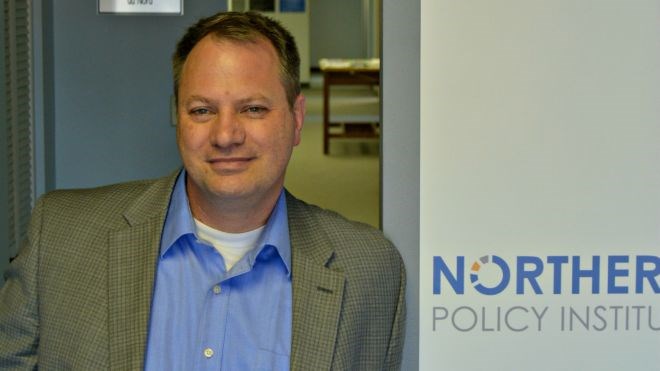“Chasing Paper: Forms over Function in First Nation Administration”, written by Caitlin McAuliffe, notes that on average, each First Nation submits over 130 reports annually about the funding they have received.
Not only is the information contained within often of no use to the funder, but it is duplicated in several other reports, in a slightly different format, but with no new data.
The report suggests this is “creating a burden on the already stretched band staff.”
Charles Cirtwell, president and CEO of the Northern Policy Institute (NPI), told Sudbury.com the report was commissioned after engagement with First Nations across Northern Ontario.
“We spent a lot of time talking to the various communities in the regions that we serve, talking about issues that are of importance to them,” said Cirtwell. “One of the things that kept coming up over and over again, was the accountability discussion.”
Cirtwell says there is a great deal of news surrounding First Nations and their accountability to the federal and provincial governments, “but there's very little discussion about the accountability that comes back in return,” he said.
“If you're collecting all of this information, what are you doing with it? How are you helping the folks who are reporting to you to improve their processes?”
The findings of the report, Cirtwell said, point to connectivity issues and the need to “close the feedback loop.”
“There's still a lack of connectivity between the metrics that the federal governments are asking First Nations to report on,” said Cirtwell. “In other words, how many people come to a meeting, as opposed to how many people actually get value from the meeting?”
As well, Cirtwell said First Nations are not receiving feedback in terms of what is done with the information they are submitting, and how to use that data to better their communities by adjusting programs and services to be more efficient.
It’s an issue that Cirtwell says is not unique to First Nations.
“If you talk to any municipal organization that's involved in these kind of relationships,” said Cirtwell, “or even universities or other funders, even us from time to time with our funding, it's a common concern that the things funders are asking for reports on don't necessarily really give the full breadth and depth of the outcomes intended by the project.”
These outcomes would also be of use to other First Nations, he said, but they too are unable to access the information because it is not compiled or published in an accessible way. The report notes that this makes the data unusable by those who could benefit from it the most, the First Nations themselves.
Another issue comes from the funding requirements themselves. Whether that is a fund that is only for large capital projects when a First Nation needs only a small amount, or the community’s goals for the project don’t match the outcomes that the funder wants reported, resulting in data that is never assessed or even communicated.
And that isn’t to mention the little details that get in the way. The report notes a technical barrier: new innovative funds often require an incorporation number, which causes a problem since a First Nation is not technically a business, municipality, person, or non-profit organization.
Cirtwell says in any talk of accountability, there must be discussion of the responsibilities of both sides.
“If they're looking at water problems, for example, or they're looking at addressing poverty or displacement, or social concerns on the first nation reserve, they've got 14 to 18 pilot projects going,” said Cirtwell. “If each one of those communities is feeding information back, then that information should be repackaged and sent back to the community saying, ‘these things work.’ This is the evidence we found from the documents you sent us, this is how we've used it to change federal policy and this is how we think you could use it to improve things on the ground. And that's just not happening.”
Some key recommendations from the report:
- Strengthen relationships and mutual accountability frameworks by creating a joint body governing relationship between Indigenous peoples and the Crown, driven by self-determination.
- Implement a data governance and privacy framework with funding bodies.
- Culturally Relevant Data Collection and Management Tools.
- Impact Reports and Data Stories.
